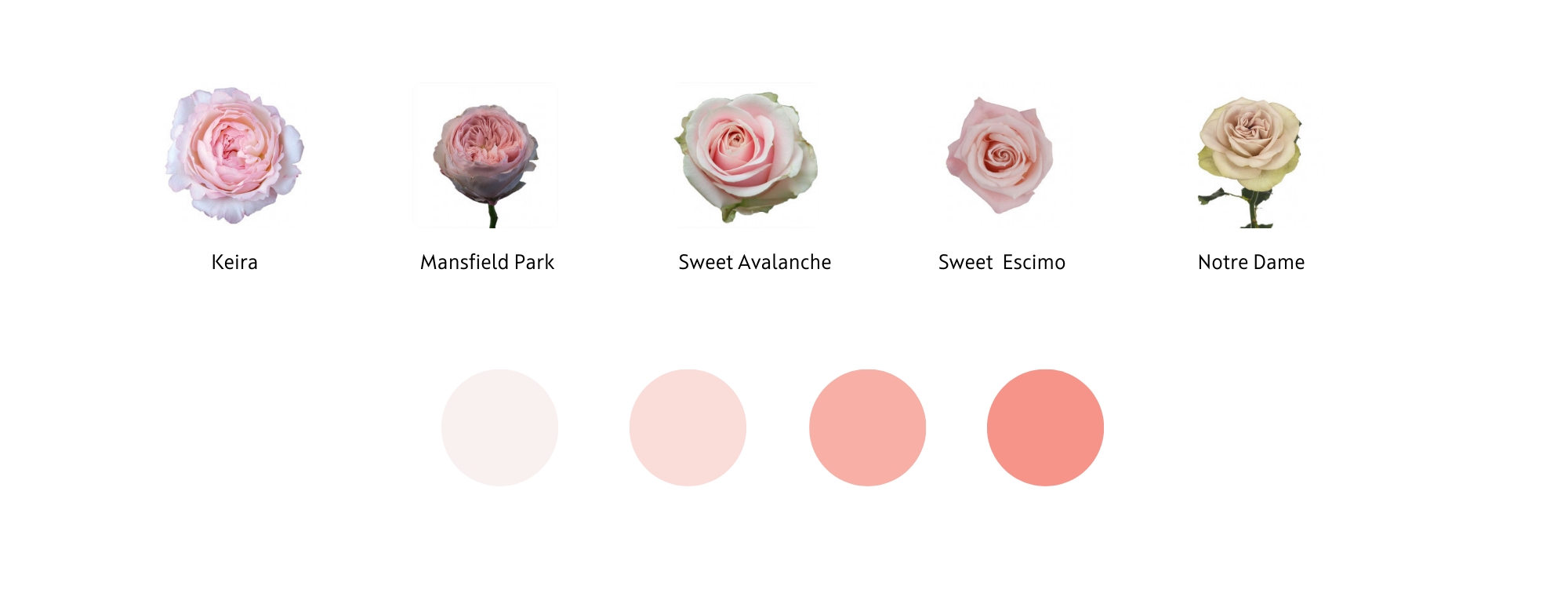6 gorgeous shades of wedding roses
When I first went into floral design, my knowledge of roses was very limited. I knew white roses, pink roses and red roses sold at my neighborhood bodega store. Writing a blog about roses has never crossed my mind until recently, because I believe there is value in sharing the knowledge and there are just so much more to know about roses! Let’s dive in!
What’s the difference between standard rose and garden rose?
Garden roses are more delicate and fragrant than regular roses. Compared to the pointy petals of regular roses, garden roses’ ruffled petals form a circular pattern, which makes them easily identifiable. (I have created the graph below to help you compare. )
Once fully open, garden roses tend to be fluffy and grow to 4 – 5 times of their original size when they were cut. The colors of garden roses vary, even when they were cut from the same bush. Sometimes, temperature also affects the tones and shades. For example, distant drums, which is one of my favorite garden rose varieties, has a pink/mauve ombre color. However when the temperature is higher, their center could look a little tan with a light brown undertone.
Why are garden roses more expensive than regular roses? Because garden roses require very specific environment and they need much more attention from growers to ensure they are disease free. As a result of their delicacy, transportation cost is also high. All of these contribute to their higher price point.
Rose Variety by Colors
There is an abundance of colors for roses. Choosing a color can be overwhelming, but in general, they can be divided into 6 color families. Each family has its own aesthetics and can be used to create unique styles.
The white – classic, clean and minimalist
The cream – earthy, organic and mellow
The blush - soft, elegant and fresh
Peach/Orange – fruity, bright and summer-like
Peach/Pink – playful, popular and romantic
Lavender – calm, refreshing and appealing
Specialty Roses we Adore
In addition to the varieties and colors mentioned above, there are roses that are bicolor, unique and hard to come by. These roses usually require higher maintenance from the farm. As a result, less farms grow them, therefore less production.
No matter what your vision might be, there is always a kind of rose for you. Ask us at your next consultation! I hope this blog post inspires you and provides a little ease for your planning! Feel free to share and spread some love!









